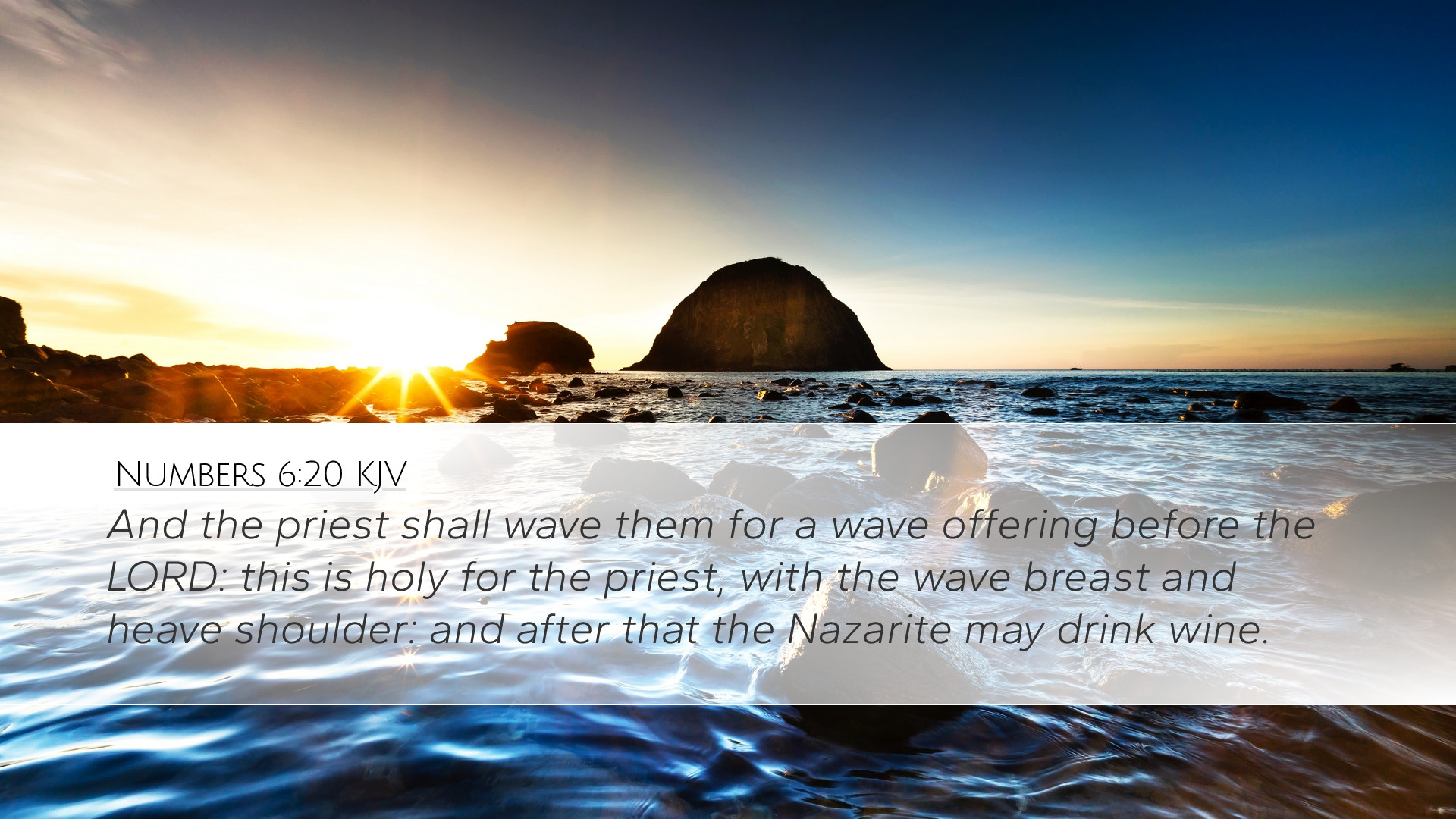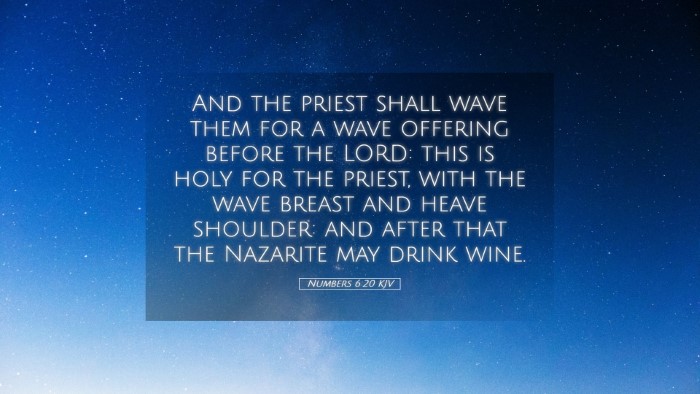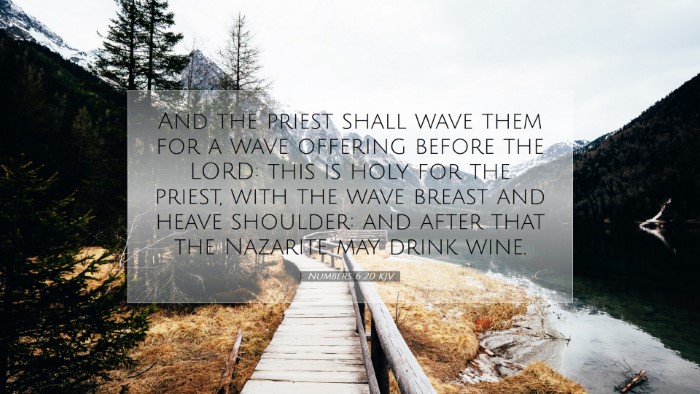Bible Commentary on Numbers 6:20
Verse Context: Numbers 6:20 states, "And the priest shall wave them for a wave offering before the Lord: this is holy for the priest, with the wave breast and the heave shoulder: and after that the Nazirite may drink wine."
Understanding Numbers 6:20
This verse is part of the instructions regarding the Nazirite vow, which is an important symbol of separation and dedication to God. The commitment made by a Nazirite is profound, and this scripture concludes the stipulations governing their offerings and subsequent return to normalcy.
Significance of the Wave Offering
The wave offering held significant importance in the ancient sacrificial system. According to Matthew Henry, the action of waving before the Lord illustrated the acknowledgment of God's sovereignty and the testimony of the offering being accepted by Him:
- Recognition of Divine Ownership: By waving the offerings, the priest signified that both the offerings and the offeror belonged to God.
- Symbol of Acceptance: Waving before the Lord was an assurance that the offerings were pleasing and acceptable in His sight.
The Role of the Priest
Albert Barnes expounds upon the priest's role as a mediator between God and the people during this process. The priest's actions reflect his office and the sanctity of his position in addressing God on behalf of the Nazirite:
- Intercession: The priest intercedes for the Nazirite, emphasizing the community aspect of worship.
- Consecration: The rite designed by God through Moses illustrates the holy character inherent in the priestly function.
The Heave Offering and Its Implications
In Numbers 6:20, the mention of the "heave shoulder" connects to a tradition wherein specific parts of the sacrifice symbolize offerings returned to the priests for their sustenance. Adam Clarke notes that it also:
- Represents Christ: Some interpretations see the heave offering as a typology of Christ, as He represents the ultimate Sacrifice that has been lifted up for the atonement of sin.
- Communal Sharing: This offers a reminder of the communal aspect of worship, where the community shared in the blessings of God through the priesthood.
Transition Back to Normalcy
Upon completing the vows, the Nazirite is allowed to return to a regular life, which may include wine. This return signifies the fulfillment of his vow, and Henry reflects on the importance of balance post-separation:
- Restoration and Balance: The Nazirite's return to drinking wine signifies restoration to communal practices that were previously abstained from during the vow.
- Holiness in Daily Life: While the Nazirite returns to normalcy, the call to holiness remains, and one is continually reminded that they must live life in a way that honors God.
Applications for Pastors, Students, and Theologians
This verse sheds light on various important theological themes. Pastors might consider the role of counseling in a believer's commitment to their faith.
- The Power of Vows: Evaluating how personal commitments to God are reflected in community worship.
- Understanding Mediatorial Roles: The importance of pastoral care and intercession in congregational settings, mirroring the priest’s functions.
For students and scholars, this passage serves as a rich example of the interplay between law and grace:
- Typology of Christ: Consider how the Old Testament sacrificial system foreshadows the New Covenant established through Christ.
- Cultural Significance: The study of the Nazirite vow can provide insights into ancient Israelite culture and its expectations of holiness.
Conclusion
Numbers 6:20 encapsulates profound aspects of the priestly function, the nature of offerings, and the life of a Nazirite. Through this reflection, we recognize the continuous thread of community, sacrifice, and God's call to holiness that remains relevant for contemporary believers.


